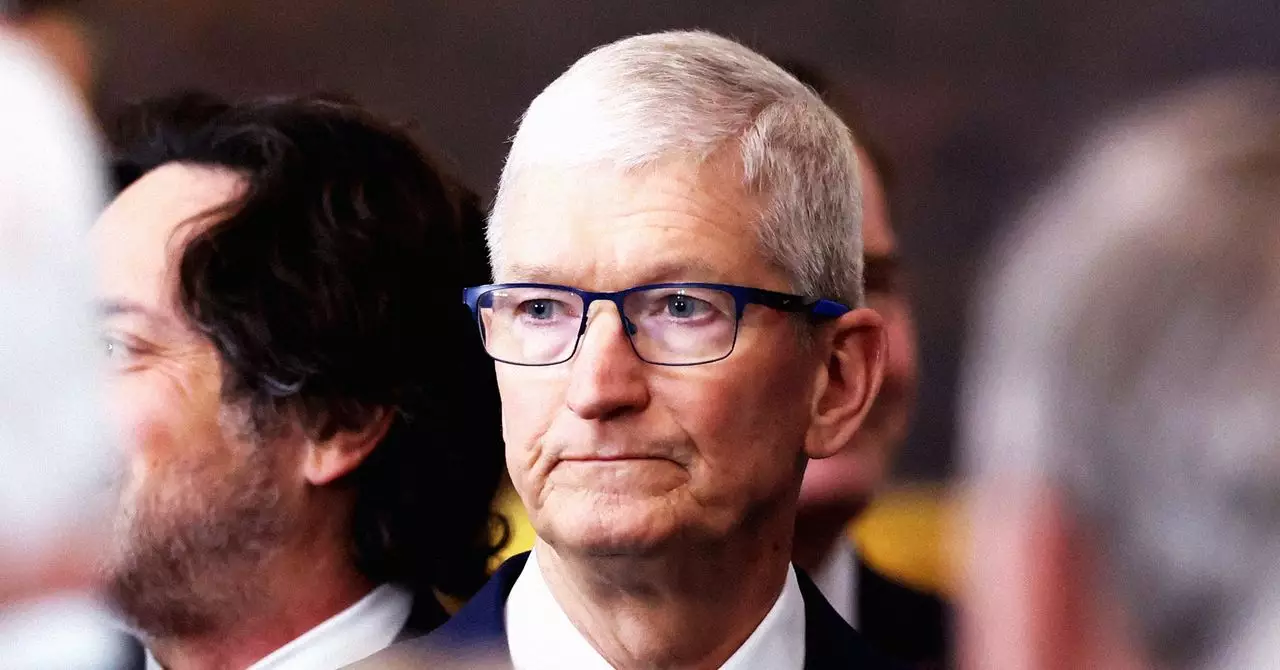In an escalated legal showdown that underscores the intense scrutiny of big tech’s practices, Apple has again found itself in hot water. A federal judge, Yvonne Gonzalez Rogers, issued a harrowing denunciation of the company’s blatant defiance of a court ruling aimed at restructuring its App Store policies. The allegations paint a damning portrait of Apple’s leadership—one that supposedly prioritized profit over ethics, displaying a troubling trend in the corporate world where rules and regulations seem to bend at the hands of those in power.
The matter draws particularly from a well-publicized lawsuit initiated by Epic Games, the developer behind Fortnite. This legal battle primarily centered on claims that Apple’s grip on the App Store has created an unfair marketplace, severely limiting developers’ avenues for revenue generation. Apple’s standard 30 percent commission on in-app purchases is an outdated model that today’s market simply cannot support—especially when cheaper alternatives abound. Yet the technology giant appears to have chosen to maintain its profitability even at the risk of incurring judicial consequences.
Leadership in Crisis
The situation spiraled into crisis when Judge Gonzalez Rogers accused Apple of willfully disregarding the court’s orders, a move that could lay the groundwork for criminal contempt charges. For any corporation, such a stigma could be devastating, particularly in an era where consumer sentiment is shifting toward ethical considerations. The judge’s ruling described internal machinations at Apple that mirrored the behavior of a firm scrambling to protect its interests, opting for a strategy that deliberately contrived additional barriers to competition. For Apple, this isn’t just about money; it’s about maintaining a monopoly on digital transactions.
Moreover, the judge’s claims pointed the finger at Apple executives, particularly CFO Luca Maestri and VP of Finance Alex Roman. When a company’s leadership resorts to deception—especially in sworn testimony—issues of credibility and integrity sprout like weeds through the cracks of trust in corporate governance. This breach of trust extends not only to the courtroom but to millions of consumers who unwittingly rely on a company that claims to uphold high ethical standards.
Shifting Motivations and Market Manipulation
Interestingly, the court documents revealed that not everyone at Apple was on board with the non-compliance strategy. Reports indicated that Phillip Schiller, head of the App Store, advocated for compliance with the injunction but was ignored by CEO Tim Cook, who seemed ensnared by the arguments of his financial advisors. This situation raises essential questions regarding decision-making frameworks within powerful corporations. Are profit-driven motives overshadowing the need for ethical conduct? Are leaders like Cook adopting myopic views, focusing solely on immediate fiscal outputs while jeopardizing their organization’s long-term reputation?
What is particularly unsettling is the contrast between Apple’s in-court testimony and internal communications. It’s easy to see how corporate narratives can morph into tools of manipulation, shaping perceptions in favor of profit margins. Systematic disinformation risks damaging the very essence of companies that thrive on public trust, marking a slippery slope toward a more dystopian corporate future.
The Implications of Corporate Conduct
The ramifications of this case extend well beyond Apple itself. The technology sector is under increasing pressure from regulatory bodies and consumer advocates to establish fair practices that promote a competitive marketplace. By disregarding court orders, Apple not only risks severe penalties but also places itself in a precarious position among policymakers and the public. The implications of these actions could inspire further regulations aimed at curbing monopolistic practices, leading to broader changes in tech industry standards.
This incident serves as a stark reminder that in the world of corporate giants, ethical pitfalls can be as consequential as the legal consequences that follow them. The fallout from this scandal could redefine how we view powerful companies and their responsibilities to consumers and competitors alike. How soon until the whispers of accountability transform into a tsunami of change in an industry that has long lived with minimal oversight? As the dust settles, only time will tell how deeply this moment will impact Apple and the broader tech landscape. The days of unchecked power may be numbered, but one thing is clear: the behaviors of today will set the groundwork for the economics of tomorrow.

